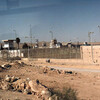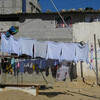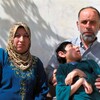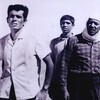
6-5 Majority of Supreme Court Approves Most Racist Law in State of Israel
14 May 2006
Today, 14 May 2006, a majority of the Supreme Court of Israel, in a split of 6-5 Justices, issued a 263-page decision in which it dismissed a petition filed by Adalah, and six other petitions joined by the Court to the petition, including a petition filed by the Association for Civil Rights in Israel. The petitions demanded the annulment of the Nationality and Entry into Israel Law (Temporary Order) 2003, which violates the right of Israeli citizens to family unification with their Palestinian spouses from the Occupied Palestinian Territories (OPTs). Read more about 6-5 Majority of Supreme Court Approves Most Racist Law in State of Israel








